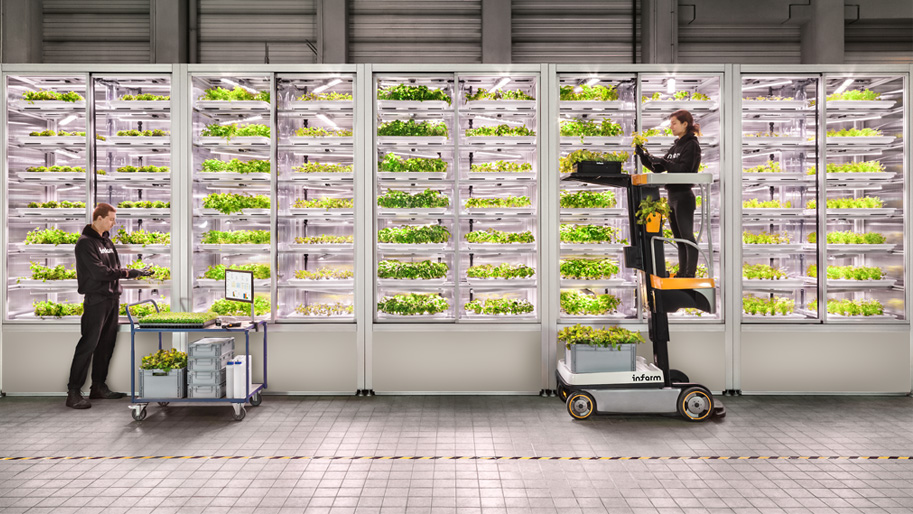IoT, Meet Farming

68% of the world population is projected to live in urban areas by 2050, adding another 2.5 billion people to urban areas, according to UN estimates (2018). Cities will increasingly have to develop sustainable ways of meeting the demands of their growing urban populations. Included is the area of agriculture.
The startup Infarm, founded in 2013 by Osnat Michaeli and the brothers Erez and Guy Galonska in Berlin, shows how cities can become self-sufficient in their food production while improving the safety, quality and environmental footprint of food.
Infarm develops vertical farm modules and combines these with IoT and Machine Learning technologies. The modular farms are placed in customer-facing city locations, such as in supermarkets or restaurants, and the produce is harvested on-site. This enables the end-customer access to the freshest possible produce—so fresh the roots are still attached. The distributed system is designed to be infinitely scalable through adding more modules, space allowing.
“The individual farms are connected and remotely controlled by our central farming platform that learns, adjusts, and improves itself continuously, so each plant grows better than the one before,” says founder Osnat Michaeli. “From the cloud, at our Berlin headquarters, we’re able to gather up-to-the-minute information about how our plants are growing (including specific metrics such as temperature, pH, and nutrient concentration) and how they respond to different growth environments on a minute scale.” Infarm offers “farming-as-a-service”, being modular and data-driven, while following a distributed approach which combines IoT, Big Data and cloud analytics.
As of today, Infarm has 500+ farms in stores and distribution centers across Europe and North America,saving around 3.5m liters of water, 27k square meters of land and emissions from 1.7m km of transportation. Infarm has partnered with more than 25 major retailers in seven countries, including Marks & Spencer, Edeka, Metro, Migros, Casino, Intermarche, Irma, Auchan, Selgros, and Amazon Fresh. In November 2019, the supermarket chain QFC, owned by Kroger, installed Infarm modules in two of their Seattle-area locations. This year, QFC plans to launch growing hubs at 13 additional stores in Washington.
